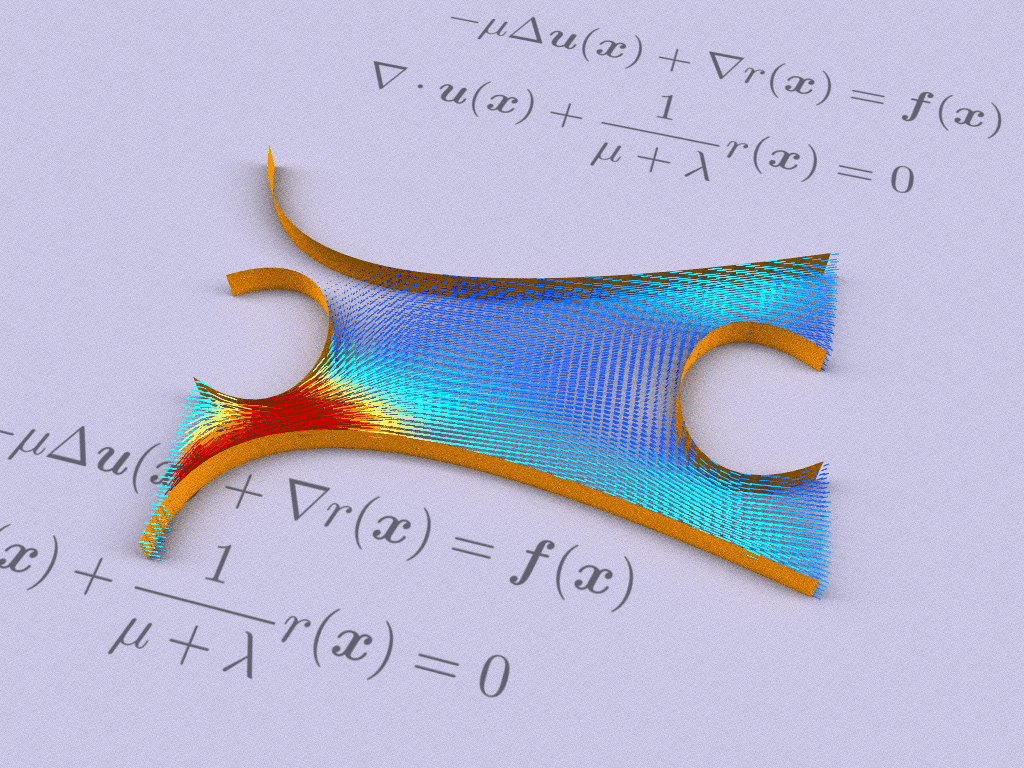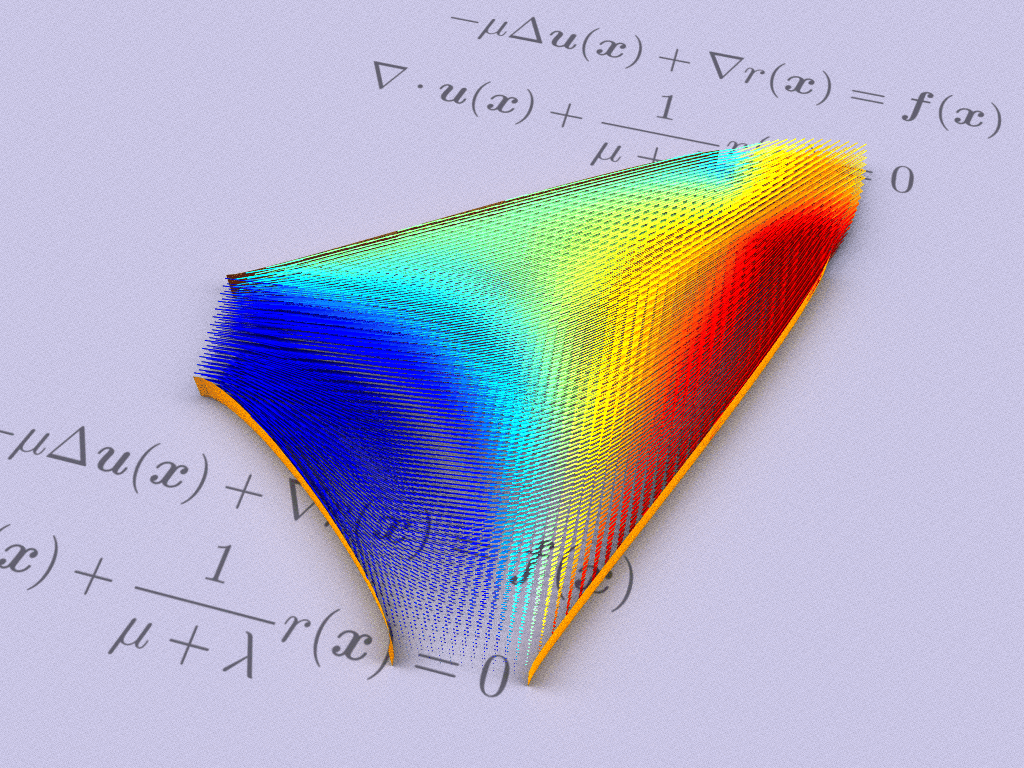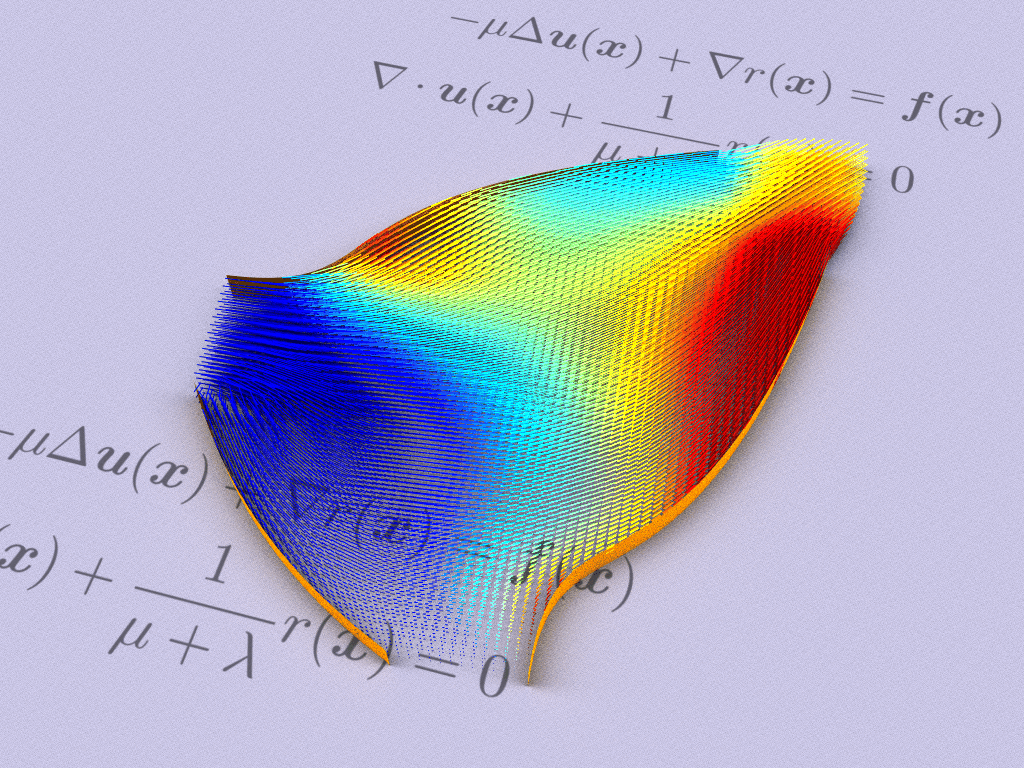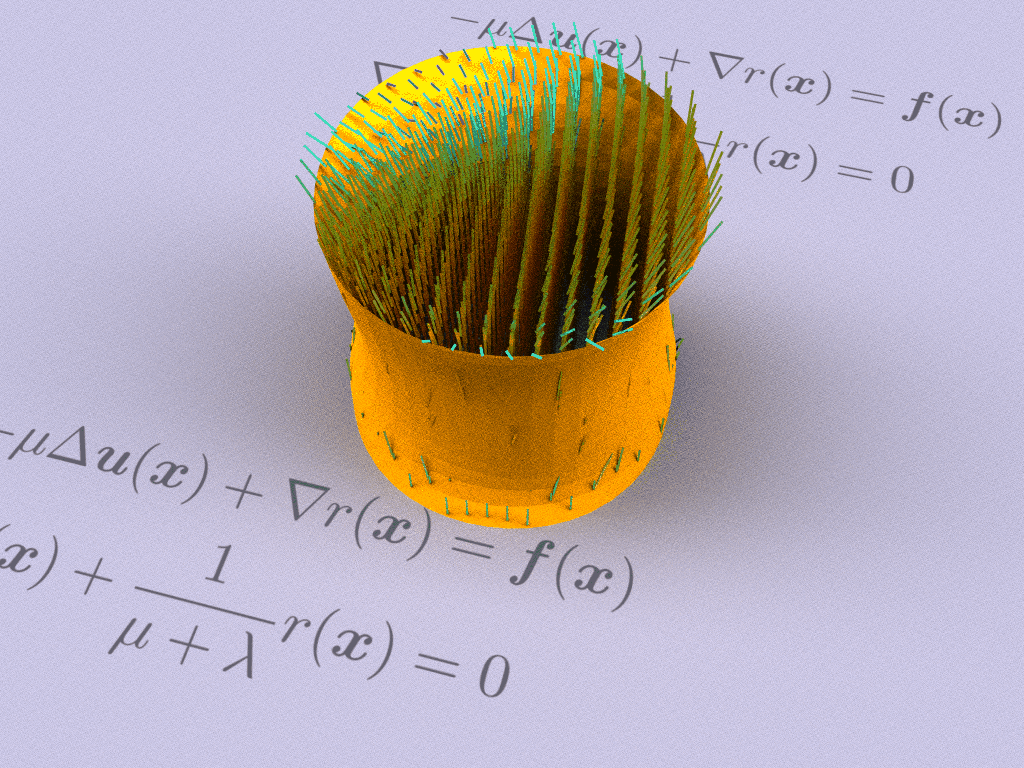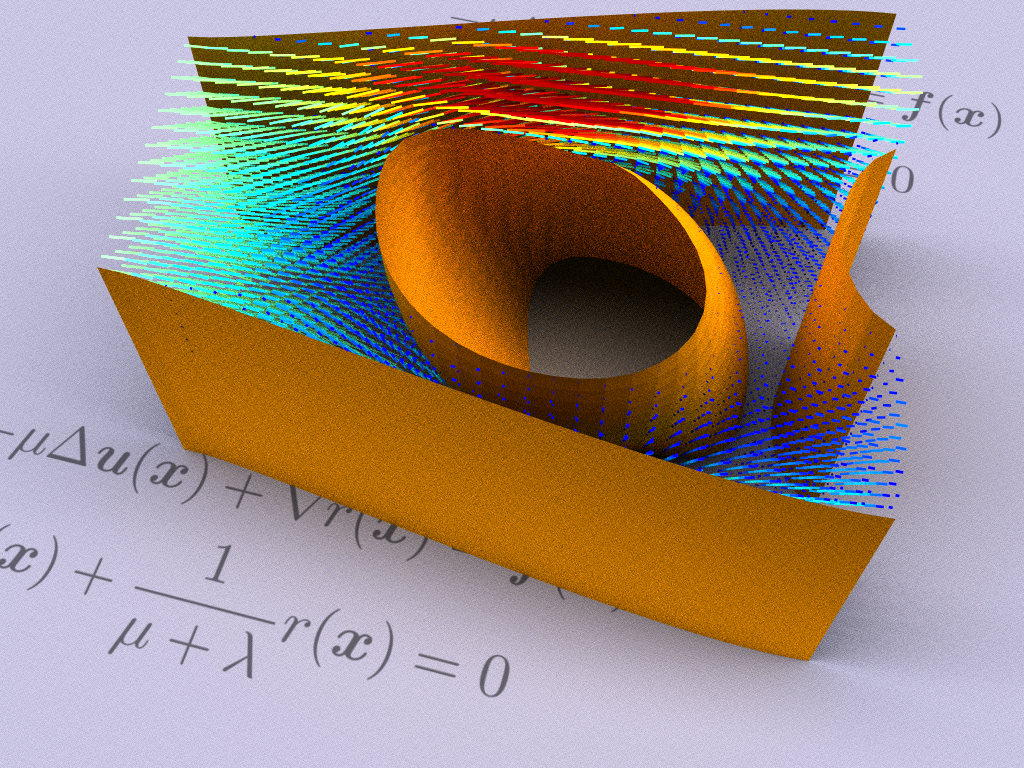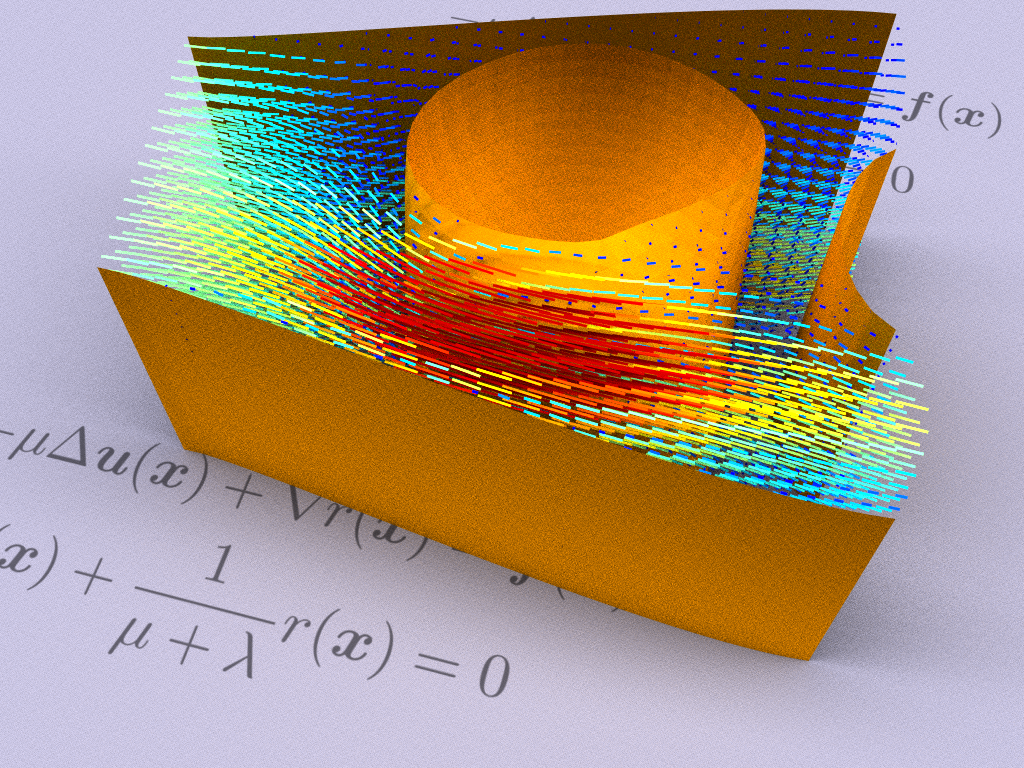- Ubuntu 18.04
- (Mini)conda 4.7.12 or higher
git clone --recursive https://github.com/mit-gfx/diff_stokes_flow.git
cd diff_stokes_flow
conda env create -f environment.yml
conda activate diff_stokes_flow
./install.sh
Let <PARDISO_HOME> be the folder that you saved your Pardiso license file and the binary file. For example, if /home/pardiso/pardiso.lic and /home/pardiso/libpardiso600-GNU720-X86-64.so are your license and binary files, then <PARDISO_HOME>=/home/pardiso.
- Set
PARDISO_LIC_PATHandOMP_NUM_THREADS:
export OMP_NUM_THREADS=4
export PARDISO_LIC_PATH=<PARDISO_HOME>
export PARDISOLICMESSAGE=1
- Pardiso requires
lapackandblas:
sudo apt-get install liblapack-dev
sudo apt-get install libblas-dev
As of the date this README is written, the version we use is 3.7.1-4ubuntu1:
Reading package lists... Done
Building dependency tree
Reading state information... Done
libblas-dev is already the newest version (3.7.1-4ubuntu1).
liblapack-dev is already the newest version (3.7.1-4ubuntu1).
0 upgraded, 0 newly installed, 0 to remove and 132 not upgraded.
- Recompile the codebase with an optional
pardisoargument:
./install.sh pardiso
Navigate to the python/example folder before you run any of the following scripts.
Run python run_demo.py [demo_name] where [demo_name] can be any of the following;
amplifier: run theAmplifierdemo (Fig. 2) in the paper.flow_averager: run theFlow Averagerdemo (Fig. 4) in the paper.
superposition_gate: run theSuperposition Gatedemo (Fig. 4) in the paper.
funnel: run theFunneldemo (Fig. 4) in the paper.
fluidic_twister: run theFluidic Twisterdemo (Fig. 5) in the paper. Note that the original result was run with a resolution of 64 by 64 by 32, and we downsampled it in this codebase for a faster demonstration.
fluidic_switch: run theFluidic Switchdemo (Fig. 1) in the paper. Note that the original result was run with a resolution of 64 by 64 by 32, and we downsampled it in this codebase for a faster demonstration. The two figures below show the optimized solution in two modes:
Run python [script_name].py where [script_name] can be any of the following:
bezier_2d: show the level-set of a Bezier curve and check the implementation of gradients.cell_2d: check if all quantities inCell2dare implemented correctly.scene_2d: check the gradients of loss defined in a 2-dimensional scene.shape_composition_2dandshape_composition_3d: check the gradients of composing multiple primitive level-sets. Finally, if you would like to run all these numerical experiments above, you can simply callrun_all_tests:run_all_tests: this will sequentially run all the aforementioned numerical tests.
Run python refinement.py to generate the numerical results in Fig. 8 in the paper.
Run python pbrt_renderer_demo.py to see how to use the Python wrapper of pbrt-v3.
Additionally, we have also provided a few Python scripts for generating figures in the presentation:
python draw_pipeline.py: generate each subfigure in the whole pipeline.python draw_design.py: generate pictures for the design section.python draw_discretization.py: generate pictures for the discretization section.python draw_optimization.py: generate video and pictures for the optimization section.
@article{du2020stokes,
author = {Du, Tao and Wu, Kui and Spielberg, Andrew and Matusik, Wojciech and Zhu, Bo and Sifakis, Eftychios},
title = {Functional Optimization of Fluidic Devices with Differentiable Stokes Flow},
year = {2020},
issue_date = {December 2020},
publisher = {Association for Computing Machinery},
address = {New York, NY, USA},
volume = {39},
number = {6},
issn = {0730-0301},
url = {https://doi.org/10.1145/3414685.3417795},
doi = {10.1145/3414685.3417795},
journal = {ACM Trans. Graph.},
month = dec,
articleno = {197},
numpages = {15},
keywords = {physically-based simulation, fluid simulation, computational design optimization}
}
If you have any questions about the paper or the codebase, please feel free to contact taodu@csail.mit.edu.
